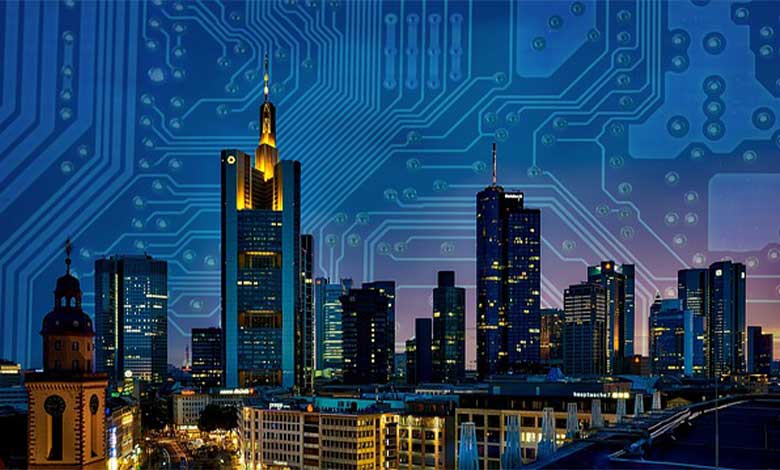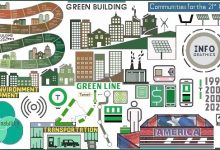
In these times of pandemic, no one can stay immune to the news running the world. There are no headlines other than the ones related to the new Corona Virus and the dramas that plague cities like Bergamo, Madrid, or New York. Or the discussions on the impact of this calamity in third world countries, where sanitary conditions and population density are the fuel to ignite the spread of the disease.
But just as other pandemics, like the black plague or the Spanish flu, it will pass. But the question that remains is what lessons we will learn to build the Cities of the Future. Or rather, what will be the future of cities.
Technology will undoubtedly play a significant role in this transformation. During the pandemic, companies around the world quickly adopted the concept of Home Office. Courts have their judgment session by closed-circuit TVs. Separated families hold Skype meetings to chat. Friends promote virtual “happy hours” encounters to toast their glasses, each one on their own house. And kids’ study at home with their notebooks using Remote learning tools such as Khan Academy. All of these activities would not have been possible without the Internet. During the last 20 years, countries and enterprises invested heavily to build an incredible telecom infrastructure which today embraces almost every corner of the world. On our current troubled days, much of the world’s business structures remain open because business continuity is guaranteed through the availability of information systems, managing multiple aspects of our economic life. Economy aside, our mental sanity also benefits from these capabilities due to the virtual connections and meetings we can keep on doing.
To support the massive increase in Internet traffic, resulting from the higher number of virtual meetings and telework activities, companies like ZOOM, FACEBOOK, and MICROSOFT, had to increase their infrastructure to meet the immense demand for their telecommunication services.
The burden and impact on the global economy, due to the lockouts and quarantine, will be huge, and we will have to pay that toll. Still, the transformative potential of this crisis will have unimaginable consequences in the upcoming years. And unlike many pessimists, I predict that the economic impact in the medium and long term will be positive, and the expectations that the world will sink into a great depression should not occur. On the contrary, we will accelerate progress and development at a pace that has never seen before.
Why is that?
Companies are now verifying that it is possible to work without the physical presence of employees. So why do they need to have big offices in urban centers, paying very high rent and forcing employees to waste hours and hours moving in gigantic traffic jams, just to have them seated at a desk for the most of the day? This crisis will make many companies realize that home office work is possible and that the results it produces are many times more efficient than having their collaborators physically present in the workplace. They will also realize that the cost reduction resulting from this new work order will significantly compensate for any possible loss of control over the activities developed by the teams. The direct consequence for cities will be the reduction of traffic and pollution. Venice gave the first glance of this possibility when dolphins returned to swim in their now crystalline canals. Wuhan today has blue skies, instead of the polluted gray a few months ago. And the birds returned to chirps in the skies of São Paulo.
Efficiency and productivity gains will be unbelievable in the future ahead. Under this new working paradigm, cities will rapidly undergo significant transformations. The reduction in people traveling to towns will lead to a lower population density and reduced traffic in the streets. On the other hand, there will be an explosion in economic benefits generated by a network of highly productive people because they will be more and better connected. The Metcalfe Law gives us hints about why there will be an increase in economic gains due to higher connectivity. Many other studies point in the same direction, such as the white paper The Economic Impact of Interoperability and reports from the ITU and WITSA. The increase in productivity will result in significant GDP growth for cities, regions, and countries.
Another area of significant transformations will be the logistics sector. As we are observing during this pandemic, a large part of the urban population has changed in a day, their purchase habits. Due to social distancing needs, many are now buying using delivery services to avoid leaving home and keep social distancing. Here in the United States, Amazon, Wallmart, CVS, and others are hiring more than 800,000 people to support the increased demand for orders. Purchase habits will change forever. We will no longer have stores to buy stuff. We will have stores to try products. This new trend, supported by highly efficient information and distribution technologies, will allow the reduction of inventory volumes in urban centers, where the cost to lease space is prohibitive. These changes will allow for optimizing the need for large floor plans and reduce business owners expenses and investments in assets, inventories, and rents. In the City of the Future, you will go to a store to try the product you have in mind. After checking, tasting, or proving it, If you like it and want to buy it, just place your mobile phone closer to the product, click on the authorization, and you will have it in your doorsteps in a few hours. All connected: Store, bank account, remote inventory, carrier, and your address. Simple, agile, and secure.
In addition to distance education, remote work, and experience stores, another relevant area of change will be in the health sector. With today’s existing sensors and with the new IoT (Internet of Things) systems under development, medical care will also be virtual. Your biomedical data will be sent through the cloud. Artificial Intelligence systems will help medical professionals to monitor your vitals. Your visits to the doctor’s office and laboratories will only happen in exceptional cases. AI systems will identify any health issues in the early stages, and your treatment will begin long before the symptoms become critical. The efficiency in disease prevention and treatment will be raised to levels never before possible. Companies like IBM, with their WATSON system using Artificial Intelligence for diagnosis, or MEDTRONICS with their bio-metric monitoring devices, are at the forefront of these technologies.
Transformations will happen in many other areas. There is no crystal ball capable of identifying what lays ahead. The transformation spectrum will be broad, from the economic sector to social and cultural landscapes. Therefore, I am not afraid to say that the Corona virus pandemic is paving the pathway that will take us faster to the city of the future.











